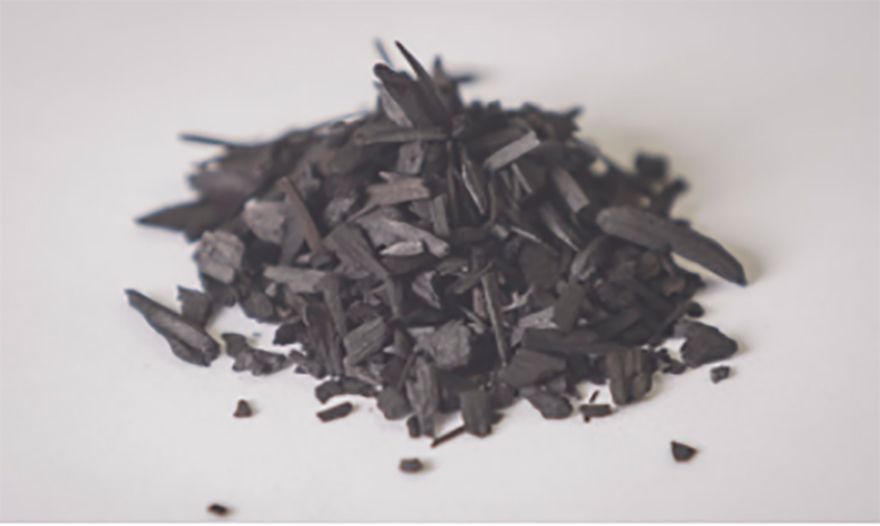
The
University of Nottingham is to lead the world’s largest trial to evaluate the viability of a material called Biochar to store carbon from the atmosphere to counter the impact of climate change.
The £4.5 million project is one of five UK Research and Innovation-funded demonstrators investigating the adoption of Greenhouse Gas Removal (GGR) technologies to cut CO
2 emissions at a scale that may help the UK reach its net-zero target by 2050.
Work on the 4.5-year project began on 1 May and field trials will be conducted at arable and grassland sites in the Midlands and Wales, as well as former mines, railway embankments where engineering work has resulted in loss of vegetation, and woodlands across England and Wales.
Biochar is a charcoal-like substance, produced by heating organic biomass from agriculture and forestry waste in the absence of oxygen (pyrolysis) to make it carbon-rich and chemically-stable. At present, in the UK, it is produced on an extremely small-scale in kilns and it is mainly sold as a mulch for horticulture.
Compared to commercial-grade charcoal used on barbecues, biochar is similar but, ideally, should be produced at higher temperatures to produce carbon that will be stable over hundreds of years. However, its effectiveness, cost, social acceptability and limitations need to be better understood and proven at scale.
The UK currently imports over 90% of the 100,000 tonnes of charcoal used domestically, but production needs to be increased to a scale of millions of tonnes each year to make a significant contribution to support Government net-zero emission targets by 2050.
Therefore, Britain would need to invest in multiple large-scale plants which would not only produce the Biochar, but the gases generated in the charring process can be used to provide renewable heat and power.
Project lead, Professor Colin Snape, director of the Nottingham’s EPSRC Centre of Doctoral Training in Carbon Capture and Storage and Cleaner Fossil Energy, said: “40% of carbon goes into the biochar and 60% is converted into heat and power which is recovered in a large-scale plant. It is a very energy-efficient, carbon neutral system.”
The research team will take a “technology-neutral” stance and evaluate both the carbon storage and economic performance of biochar as a GGR technology to inform policy-makers with their findings.
Professor Snape continued: “The aim is to take carbon from atmospheric emissions and trap it in the biochar. That carbon will then be locked in the soil for centuries, if not millennia, so its sustainable production could be a powerful tool in the fight against climate change.
“However, we need to get a detailed and accurate picture of the longevity and stability of Biochar carbon in soils to ensure it has no detrimental impact.”
To assess how much Biochar can be deployed in the UK without adversely affecting the soil eco-system, the project will be established at commercial scale in the largest integrated trial of its kind. To facilitate the research, over 200 tonnes of Biochar will be prepared from virgin and recycled wood.
It will then be tested prior to field application at the University of Nottingham, where Dr Will Meredith, assistant professor in fuel science and technology, will analyse its characteristics, the stability of the carbon it holds and the rate it degrades over time.
He added: “Chemical analysis will tell us how much of the carbon applied as Biochar is actually locked away in the soil long-term, and how much goes back into the atmosphere as CO
2. This will show how effective large-scale Biochar deployment could be as a method of greenhouse gas removal.
For more information on the project visit the University of Nottingha website (
www.nottingham.ac.uk/news/4.5m-study-sustainable-technology-to-remove-co2-air).